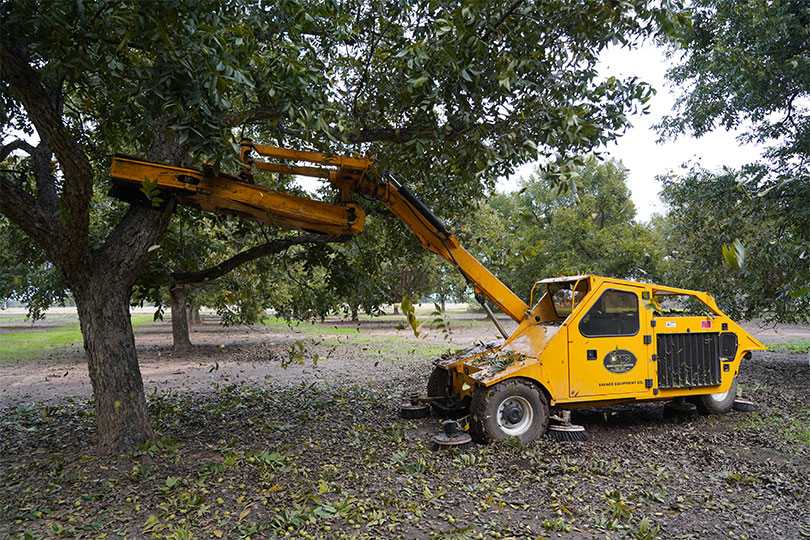By Jessica Domel
Multimedia Reporter
A group of U.S. Republican senators, including both John Cornyn and Ted Cruz of Texas, is expressing strong concerns with the U.S. Department of Agriculture’s (USDA) allocation of trade promotion funding to tree nut industries.
“The allocation, made on May 21, 2024, appears to unjustly support markets for various tree nuts over pecans,” the senators wrote.
In late May, USDA allocated $10 million dollars to the almond industry, $7 million to the walnut industry and $5 million to the pistachio industries through the Regional Agricultural Promotion Program (RAPP).
The U.S. pecan industry, through the American Pecan Council, was only granted $1 million.
“We request greater consideration be given to the pecan industry in future rounds of RAPP funding as the industry struggles to compete and remain afloat in today’s market,” the senators wrote in the letter to USDA.
The RAPP program, which the funding was granted through, is designed to build demand for American food and farm exports in high-potential markets around the globe where consumer demand and purchasing power are growing.
Targeted markets include Africa, Latin America, the Caribbean and South and Southeast Asia.
“I have not heard of any reason why those programs have gotten more of the RAPP funding than we did,” Blair Krebs, executive director of the Texas Pecan Growers Association, told the Texas Farm Bureau Radio Network. “It’s a detriment to our industry to not have a level playing field when we’re doing overseas promotions.”
The RAPP funding for the pecan industry, which goes through the American Pecan Council, would have helped the pecan industry expand market access in India.
“In 2018, large tariffs went into place for pecans going into China, and at that point, about a third of the U.S. crop was going into China. When we lost that market, it hit out industry really hard,” Krebs said. “We look to India to open up that market, and we spent many years advocating to our senators and representatives to lower the tariff on pecans going into India because the other tree nuts were lower going in there.”
The pecan industry successfully had the pecan tariff in India lowered from 100% to 30%.
“That was a huge opening for us,” Krebs said. “We’re looking now to mature that market and work in it, but without the proper funding, we can’t do as much of that.”
The funding, and increase in pecan sales to India, would help Texas pecan growers.
“The last couple of years in all of agriculture has been tough with high input costs. We’ve actually seen a number of orchards in Texas, Georgia and Oklahoma being put up for sale or going into bankruptcy,” Krebs said. “With lower prices and higher inputs, it’s just hard to make ends meet. When you open up this new market, it allows another opportunity for these producers to sell their crop and stay in business.”
In their letter to USDA, the senators say they appreciate the agency establishing the RAPP program, but the initial tranche of funding heavily favors the almond, walnut and pistachio industries.
They say this is concerning because pecans are grown in 15 U.S. states, while 100% of commercially-produced almonds and 99% of walnuts and pistachios are grown in California.
“All domestic tree nut producers deserve an equal opportunity to grow their export markets and compete on a global scale, not just growers in California and on the west coast,” the senators wrote. “The domestic pecan industry has a larger footprint than other tree nuts and represents American farmers of all backgrounds and geographic regions.”
The United States produces about 80% of the world’s pecans, amounting to 278 million pounds, but only about 28% of that is exported.
“India remains the largest potential market for pecans due to the rising demand of health-conscious consumers for premium nuts and the expanding population,” the senators wrote. “Since the duty on imports was reduced to 30%, exports of U.S. pecans to India are expected to reach between $2-$5 million annually. To reach these heightened projections of pecan exports, domestic producers need additional resources for market development and consumer education.”
The senators ask USDA to give equal consideration for all domestic commodities, especially pecans, as it allocates the remaining $900 million in RAPP funding.


Leave A Comment